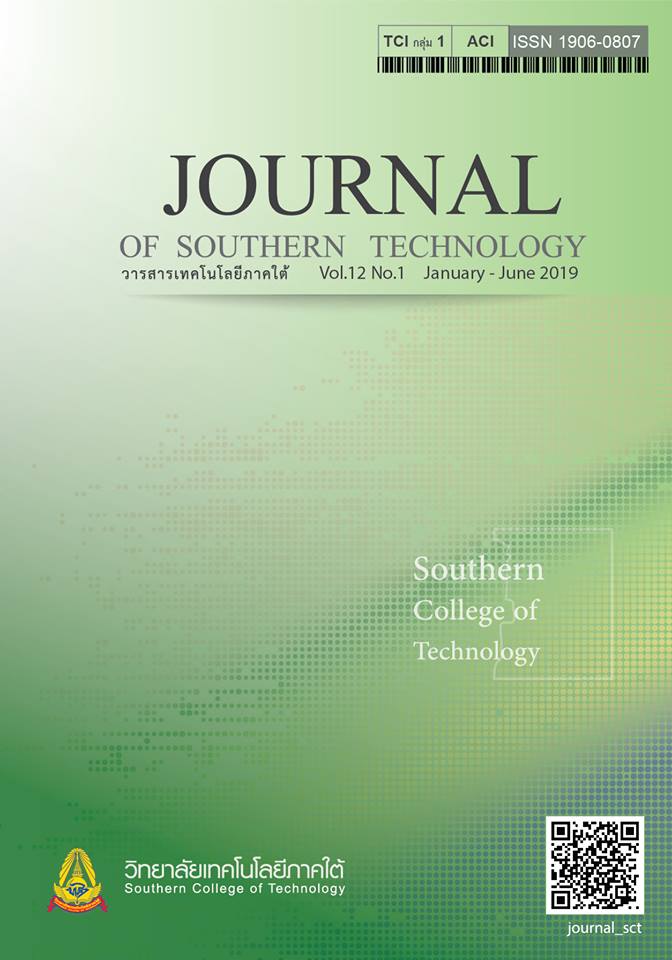The Leadership Model 4.0 for the Directors of Private General Education Schools: Case Study in Bangkok Metropolis
Main Article Content
Abstract
The purposes of this research were (1) to develop the Leadership Model 4.0 for the Directors of Private General Education Schools: Case study in Bangkok Metropolis, (2) to verify the validity of the model, and (3) to seek the outstanding components and the components needed to be developed of the Leadership Model 4.0 for the Directors of Private General Education Schools in Bangkok. This research was carried on two types of research methodologies, qualitative and quantitative mixed methods. At the beginning, the qualitative method was practiced to study and identify the Leadership Model 4.0 for the Directors of Private General Education Schools by studying the transformational leadership theories, national development policy “Thailand 4.0 Model”, Thai Education 4.0, and other related literature. Then, the researcher interviewed 5 professionals in educational field to collect data, using in-depth interview method. After that, focus group discussion was conducted to draft the Leadership Model 4.0 for the General of Private General Education Schools. Once qualitative data was completely collected, it was analyzed to create the questionnaire and the researcher started qualitative method afterwards. The questionnaires were sent to the sample group of 220 directors from the total of 709 private general schools in Bangkok by using a Simple Random Sampling. Confirmatory Factor Analysis was run by Analysis of Moment Structure: AMOS program to test the validation of the research hypothesis model. The main findings were 1) the Leadership Model 4.0 for the Directors of Private General Education Schools: Case Study in Bangkok Metropolis was consisted of 3 aspects, namely, the transformational leadership, the characteristics of Leadership 4.0 and the role and duty of the director. 2) The validation of the leadership measurement model 4.0 for the Directors of Private General Education Schools in Bangkok was in accordance with the empirical data. The value of CMIN/DF = 2.987, GFI = 0.976, NFI = 0.988, RFI = 0.870, IFI = 0.992, TLI = 0.910, CFI = 0.992, RMSR = 0.006, and RMSEA = 0.10. The Standardize Regression Weight of each latent variable was statistically significant to the model. 3) The outstanding variables were shown in all three aspects, i.e., the transformational leadership, the characteristics of Leadership 4.0 and the role and duty of the director. On the contrary, there were some variables shown the need to be developed such as, instructional leadership from role and duty of the director aspect as well as visionary and clear in vision from transformational leadership aspect.
Article Details
-
Authors must agree to the journal publication rules and allow the editors to edit the manuscripts for publication.
-
Author’s right belongs to the author but Journal of Southern Technology holds the right of first publication and thus allow readers to use the article for the purpose of education but not commercial.
References
Charoenpornsakul, N., & Boa-ngoen, C. (2016). The effectiveness of primary schools under the office of private
education. Pathumthani University Academic Journal, 8(2), 107-118. [in Thai]
DoDEA. (2014). The 21st Century Principal 21st Century Teaching, Learning, and Leading. The Department of Defense Education Activity: DoDEA
Hair, J.F., Anderson, R.E., Tatham, R.L., & Black, W.C. (2006). Multivariate Data Analysis. 6thed. New Jersey: Pearson Education, Inc.
Huen Yu. (2001). The effects of transformational leadership on teachers’ commitment to change in Hong Kong. Journal of Educational Administration, 40(4), 368-389.
Jedaman, P. (2018). Transformational Leadership in 21st Century: Thailand 4.0. Retrieved March 19, 2018, from
https://www. kroobannok.com/83312. [in Thai]
Office of the Private Education Commission. (2017). Private School Database System
information technology, General Registration Section. Retrieved April 20, 2018, from pdc.opec.go.th/index.php?
index=report2
Panich, V. (2015). Trend of School Administration in 21st Century. June 12, 2015. Hatyai University. Songkhla Province. Hatyai University Press. [in Thai]
Paopan, C. (2016). School Administrators in 21 Century. National Education Conference 1st Educational Management for Local Development towards ASEAN Community: New Direction in the 21 Century. 28 July 2016 Kalasin
Rajabhat University. Kalasin Province. [in Thai]
Patipimpakom, P. (2007). Leadership Style and Effectiveness of Administrator of Basic Education Private Schools. Ph.D. Dissertation Department of Educational Administration, Silapakorn University. [in Thai]
Sinlarat, P. (2016). Thai Education 4.0: CCPR Model. Second Edition. Bangkok: Chulalongkorn Press. [in Thai]
Wang, L.H. (2010). Successful School Leadership in Singapore, Ph.D. Thesis, Melbourne Graduate School of Education, The University of Melbourne, 2010, Abstract
Wittayanukorn, S. (2011). Developing a model of educational management for excellence in the private school. Journal of Educational Administration Burapha University, 5(1), 36–49. [in Thai]
